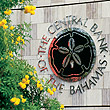| Published: Date: Updated: Author: |
The Bahamas Investor Magazine June 27, 2007 June 27, 2007 Nicole Thomas |
At the 2007 Bahamas Business Outlook conference in January, the then Minister of Financial Services and Investments Vincent Peet declared himself to be decidedly “bullish” about the nation’s economic prospects for the year ahead. Central Bank governor Wendy Craigg offered up a similar prognosis via video, predicting steady growth going forward, and the then Prime Minister Perry Christie painted a rosy economic outlook, noting that key indicators remain strong in the foreseeable future. External debt is under control, he told delegates, and investor confidence remains high, as evidenced by the $13.6 billion invested in new developments across the islands at the present time. Looking forward, Christie forecast at least $8 billion in inward investment over the next several years.
Economic vulnerability low
External assessments from well-respected industry sources are also favourable. Late last year, the International Monetary Fund predicted that domestic growth will continue to accelerate, reaching 6.5 per cent for the fiscal year 2006-07 and rising to 6.7 per cent for 2007-08. And earlier this year, Wall Street credit rating agency Moody’s reported that The Bahamas’ external vulnerability indicator (EVI), which denotes the economy’s vulnerability to external shocks, had dropped to 14 per cent—a 50 per cent decrease from 2001.
The Bahamas’ ratio of external debt to current account receipts, at 19 per cent, was significantly below the 53 per cent group average, Moody’s noted. Its ratio of external debt to gross domestic product (GDP) stood at a mere 9 per cent in 2006, among the lowest in its broad peer group, bolstering its credit worthiness. The general government debt to GDP ratio stood at about 38 per cent of GDP in 2006, better than the 76 per cent and 74 per cent achieved by Barbados and Malta respectively, two nations with comparable economies.
Moody’s reaffirmation of The Bahamas’ creditworthiness makes it easier for the government to raise capital in international markets, if it chooses to do so, through bond issues. The coupon (ie, interest rate) attached to the bond will also be relatively low compared to most Caribbean nations, as The Bahamas will be perceived as having a low default risk. Moody’s described The Bahamas’ 2006-07 fiscal year performance for the first half of 2007 as “on track,” with revenues slightly ahead of projections and spending on target.
Fifth freest economy
In January, The Bahamas was also ranked the fifth freest economy in the western hemisphere and “most prosperous in the Caribbean,” scoring higher than both the regional and world averages. The Index of Economic Freedom, published by US right-wing think tank the Heritage Foundation in conjunction with The Wall Street Journal, rated The Bahamas fifth out of 29 economies in the Americas region for economic freedom, and 24th in the world. The survey noted that, “The Bahamas enjoys high levels of business freedom, freedom from government, monetary freedom, fiscal freedom, property rights and labour freedom. The government imposes no income or corporate tax.” Also, they noted, “a focus on transparency represents the best traditions of English common law in protecting private property, which is nowhere more apparent than in the advanced financial system.”
The Bahamas scored highest in the categories on fiscal freedom and freedom from government, at 98 and 89.9 per cent respectively, largely due to its tax structure. The high score on fiscal freedom was owing to the fact that the nation’s “tax burden is one of the lowest in the world” thanks to the absence of income, corporate, capital gains, inheritance and value-added taxes. For freedom from government, the survey noted that total government spending was low, at 19.4 per cent of GDP. The Bahamas also scored well on business freedom (80 per cent) as, the survey noted, “the Bahamian government generally follows a hands-off approach to business.”









